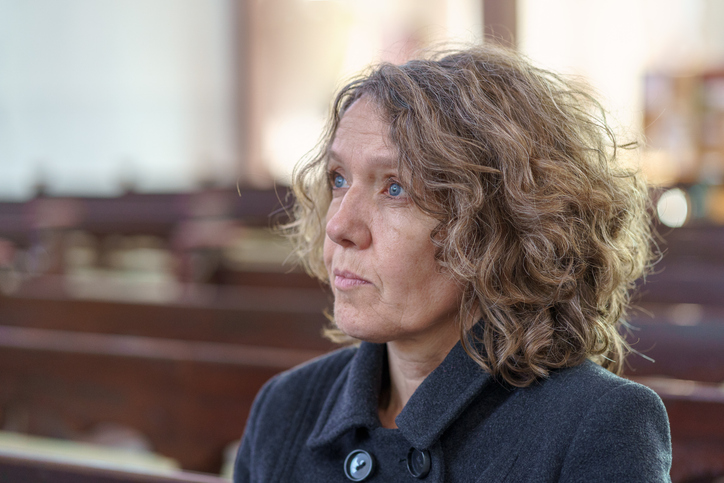-

May 2, 2024 Twelve MAUC Teams Receive Top Ranking at NAD PBE Finals 2024 North American Division Pathfinder Bible Experience
Read more -
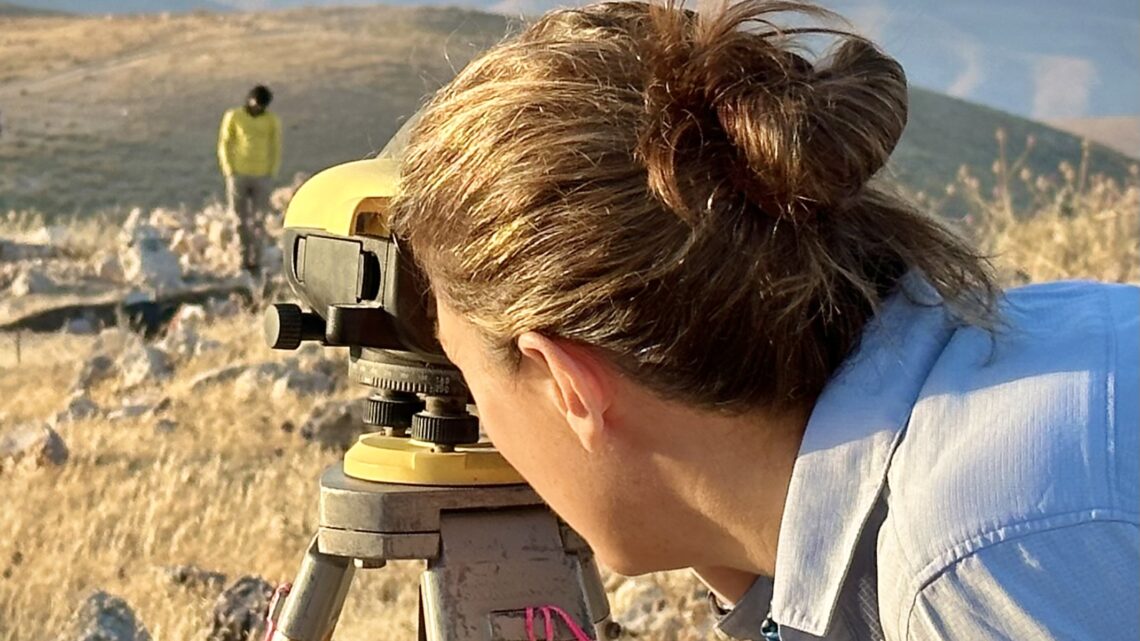
May 2, 2024 Digging up the Past Union religion professor brings the Bible to life for her students through an archeological perspective
Read more -

April 25, 2024 COLD WEATHER DID NOT STOP GREATER SUMMIT
Read more
Adventist News
 Twelve MAUC Teams Receive Top Ranking at NAD PBE Finals 2024 North American Division Pathfinder Bible Experience
Hugh Davis – May 2, 2024
Twelve MAUC Teams Receive Top Ranking at NAD PBE Finals 2024 North American Division Pathfinder Bible Experience
Hugh Davis – May 2, 2024
The North American Division Pathfinder Bible Experience finals occurred close to home for Mid-America Union Pathfinders in Greeley, Colorado. Over 160 teams participated in this year’s event. Seven teams from our territory received a first-place ranking. Five teams received a second-place ranking. First-Place Ranking Iowa-Missouri Conference, Ankeny, Son-Seekers, Devoted Kansas-Nebraska Conference, College View, Trailblazers, Cushan Rishathaim Minnesota Conference, Ramsey, Light of the World, Warriors Minnesota Conference, SE Minnesota (Rochester, Dodge Center, Faribault), Rangers, Swords Minnesota Conference, Southview, Sabers, Flame Minnesota Conference, Southview, Sabers, Spears Rocky Mountain Conference, Campion, Loveland Cougars Second-Place Ranking Central States Conference, The Mountain Experience Church, Wise Believers, Team 1 Dakota Conference, Cleveland, Prairie Trails Iowa-Missouri Conference, Poplar Bluff/ Gallatin-Trenton, The Mighty Gatekeepers Minnesota Conference, Faith Church International, Faith Warriors, Kachow Minnesota Conference, Kenyan Community, Heaven’s Crew, Eagles You can re-live the award ceremony on the North American Division PBE Award Ceremony. The Pathfinder Bible Experience, sometimes referred to as a Bible Bowl, is the official North American Division Pathfinder Bible study program. Pathfinders from across North America and other countries commit to memorizing verses, chapters, and books of the Bible as part of The Pathfinder Bible Experience. Each year, teams of six club members study a book of the Bible (alternating Old Testament and New Testament), memorizing large portions of God’s word. The Pathfinder Bible Experience was developed to help Pathfinders and young people meditate on and reflect on the Bible and how it applies to their lives. It features ideas for application to help Pathfinders use what they study and apply it to their daily experiences at home, school, and church. There are four levels of competition: Area, Conference, Union, and Division. The Pathfinders are tested on the assigned study books and the SDA Bible Commentary’s introduction to each study book. At each level, the teams scoring 90% or higher, the highest score at their testing site, make 1st place and are invited to go on to the next level. The winning teams are extreme students of the Bible and, in most cases, memorize chapters and, in some cases, the entire book(s). We pray for these dedicated youth that God may continue to use them to utilize what they learn to spread the gospel in their respective areas. And who knows? Some of these Pathfinders may be future teachers or pastors within our church. Resource: https://nadpbe.org
Read more...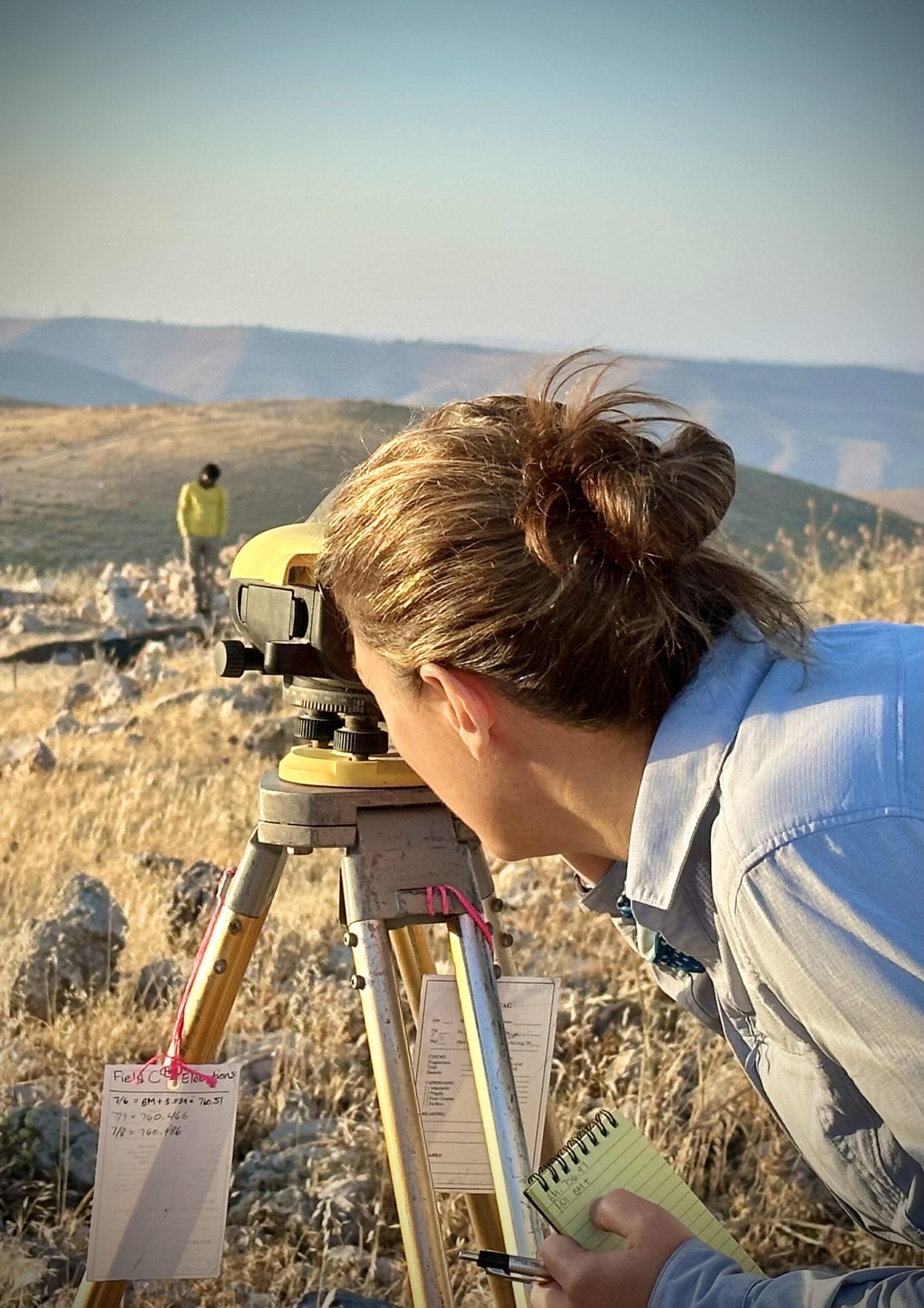 Digging up the Past Union religion professor brings the Bible to life for her students through an archeological perspective
Ryan Teller – May 2, 2024
Digging up the Past Union religion professor brings the Bible to life for her students through an archeological perspective
Ryan Teller – May 2, 2024
Walking into assistant professor of religion Dr. Trisha Broy’s office is like entering a miniature museum of archeology. She has trays of ancient ceramic shards, a stone ax head and even a mostly intact clay jar, all of which she found at various archaeological dig sites. But Broy’s favorite thing to show is a 3D-printed replica of a mysterious Egyptian statue. “This is the coolest thing we’ve ever found,” said Broy. “This statue came from the late Middle Kingdom of Egypt, but was found in a much later deposit in Jordan in a non-Egyptian settlement. He’s made of dark stone and worn, as if he’s been touched a lot particularly in the feet and face. It’s a mystery how he got there. It’s such a unique artifact that the original went to a museum in Amman, Jordan.” Over the last 25 years, Broy has excavated in Jordan, Sicily and Tennessee. However, with her master’s in Egyptology and doctorate in biblical archeology, her favorite digs are those in Jordan. She’s spent the last few summers at Khirbet Safra, an archaeological site with ruins dating back to the 13th century B.C. “I get so fascinated by the artifacts we find there,” said Broy. “Thousands of years ago, somebody was making the jars we find with their hands in the clay. It’s such a connection with the ancient people.” At the moment, Broy is focusing her archaeological research on finding clarity on ancient Egyptian interactions in Jordan, inspired by the discovery of the Egyptian statue and other artifacts at Khirbet Saftra. She said, “To put it in perspective, these are the only artifacts that have ever been found in Jordan originating from this time period that come from Egypt like this. We have a lot of knowledge on what happened on the west side of the Jordan river, but not as much about the east side. We’re working to better understand why we have this Egyptian material, especially since Khirbet Saftra is very small and out of the way. There’s no reason why it was a big site in antiquity.” Broy’s passion for biblical archaeology brings the scriptures alive for her students at Union College. She said, “A lot of my students have heard the stories in the Bible since they were little children, and sometimes they lose connection with them in the real world. What archeology does for me, and hopefully for my students, is bring the Bible back into perspective. These are real people and real events that happened in real space and real time. Archeology brings tangibleness to the stories. It gives you that sensory experience with the past, which makes it more real.” This semester, Broy is teaching Pentateuch, Biblical Hebrew I, and Introduction to Christian Faith and Adventism. “All my classes are fun to teach,” she said. “I can’t pick a favorite, but I have favorite aspects of each of them. It’s like trying to pick your favorite child.” “My Pentateuch class covers the first five books of the Bible. My Egyptology background bubbles up there as we talk about the Exodus. Hebrew is primarily taken by junior and senior theology majors, so it’s just a great group of students who are dedicated to the ministry and want to dig deeper into Biblical language. “I love teaching Introduction to Christian Faith and Adventism, because for a lot of the students these topics are new. It’s like going to Disney World with someone who’s never been there before and seeing the wonder in their eyes, only better. Even though I’m revisiting these biblical topics such as salvation, exploring them with students for the first time is always exciting.”
Read more...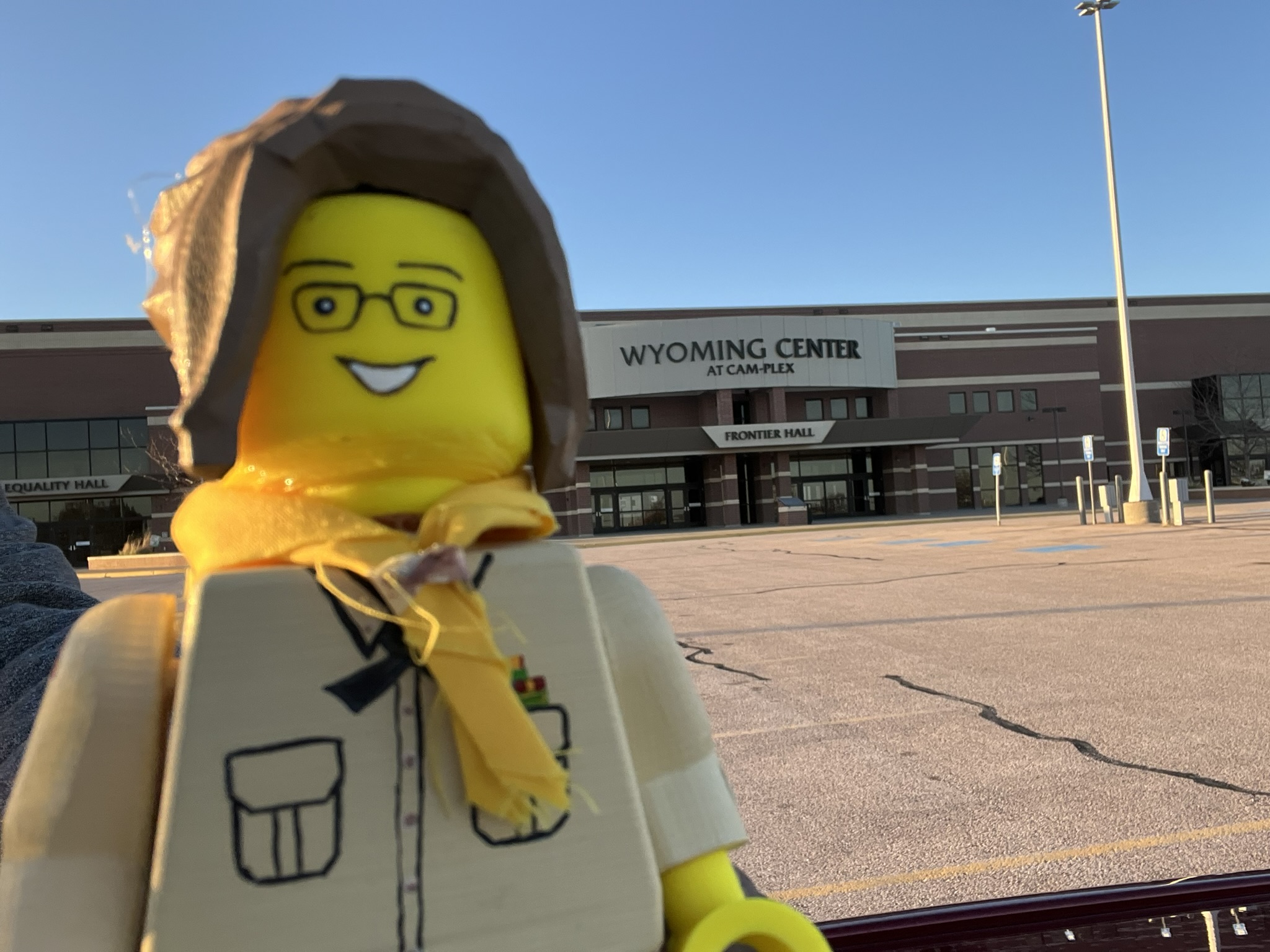 International Camporee Volunteer Tickets Are Limited Be part of the success of the 2024 International Pathfinder Camporee
Hugh Davis – April 25, 2024
International Camporee Volunteer Tickets Are Limited Be part of the success of the 2024 International Pathfinder Camporee
Hugh Davis – April 25, 2024
During a recent visit to Gillette, Wyoming, to tour the International Pathfinder Camporee grounds, we learned that out of the nearly 1,000 volunteers, approximately 200 volunteer tickets remain. The International Camporee’s success is dependent on volunteers. You can be a part of its success by volunteering for various opportunities: medical, activity, drum and drill staff are key areas where volunteers are needed. You can view available volunteer positions on the Camporee.org website. They primarily have volunteer tickets for full-time positions. A formal process exists to become an official volunteer and receive your ticket. Volunteers must be 18 or older with legal status in the United States and Canada. You have to be willing to volunteer for approximately 8 hours a day. A camporee downline director will notify you in advance about what options are available, what to expect, and your expected start and end time for the day. Just because you register to be a volunteer does not guarantee you a ticket. You must go through the volunteer process to be selected by the director of the position you are applying for. Once you register, a background check will be performed (your must be submitted). Then, someone will contact you to be interviewed. After the interview is completed, the director for that position will determine if you meet the criteria. If you do, then you will be notified that you can purchase your volunteer ticket. Only after this process is completed will you receive your ticket, so make sure you complete your application so the process can move forward as quickly as possible. You can start your application on the Camporee.org website.
Read more... COLD WEATHER DID NOT STOP GREATER SUMMIT
RMCNews – April 25, 2024
COLD WEATHER DID NOT STOP GREATER SUMMIT
RMCNews – April 25, 2024
The Rocky Mountain Conference Greater Summit teen prayer retreat took place at Glacier View Ranch in Ward, Colorado, Jan. 12-14. Jonathan Carlson, RMC director of camp ministries at GVR, commented, “Youth summit was exactly what GVR was designed for; a place for young people to meet and experience the love of Jesus Christ. That is exactly what happened.” Eighty-five participants came from as far away as Grand Junction, Colorado, Cheyenne, Wyoming, and Lincoln, Nebraska. While the weather was snowy, windy and cold, our teens had an absolute blast. Jade Teal, RMC Youth Department assistant director, planned the event and did a fantastic job of facilitating and directing participants so everyone knew what was happening and when and where those things were taking place. Greater Summit is focused on three areas: Encounter: This was the worship time with praise music, prayer and opening the Word. The speaker for the weekend was Virgil Covel, the ministerial director for the Kansas-Nebraska Conference, who shared relevant stories to both challenge and encourage the teens. Engage: This was when the teens wrestled with some real questions about life and faith with their adult sponsors. Many great conversations took place, and the teens were invested in this time with one another. Enjoy: This was the time our teens spent in activities. Some of the outdoor activities included snowshoeing, hiking, snow tubing, making snow forts and more. Other teens were more interested in indoor activities like swimming, making crafts, filling out cards for shut-ins, or just enjoying a cup of hot chocolate with new friends. Carlos Santana, Campion Academy chaplain, said, “The Greater Summit was an amazing experience for our Campion students as well as for myself. The spiritual programing was on point for what the youth may struggle with during this time in their lives.” “The breakout Engage sessions were a highlight of the spiritual programing,” he continued. “Giving students the opportunity to share their testimonies and thoughts on the various topics we covered was such a blessing for us! The activities were well planned and fun, and even though weather didn’t cooperate, there was always something to do for our kids.” Santana finished by saying he was certain that “… all of our students would benefit from attending Greater Summit.” RMC staff members are already planning for next year’s Greater Summit, and they are certain it will be just as epic as this one!
Read more...
Blogs
 #TuesdayTalk: If You’re Going Through Hell… 5 Ways to Ask What Someone is Going Through
Home, Church, School – April 30, 2024
#TuesdayTalk: If You’re Going Through Hell… 5 Ways to Ask What Someone is Going Through
Home, Church, School – April 30, 2024
Winston Churchhill famously said, “If you’re going through hell, keep going.” This resonates with me as I’m experiencing some of the hardest days I’ve ever had. I lived in an abusive relationship as a teen and was divorced at a young age. I spent years thinking I couldn’t have children. Then, when I did find happiness, we had many rough times, both financially and within our relationship. Tough times are unavoidable, but the problem is that we often hide what we’re going through so our pain doesn’t burden others. When you go through something terrible enough–when you’re going through hell–it demands attention. Others notice. If you know someone is going through something terrible but don’t want to ask them outright how they’re doing, here are five ways you can ask them. Be with them. Being present with someone struggling is a beautiful way to find out how they’re doing. Invite them to do errands with you and drop off something yummy to eat. Pour them a hot drink and make them a plate. People are more likely to share their heart with you while you share something to eat. Tell them what you are going through. Just as in a support group, people are more apt to share their struggles when others are willing to share their experiences. You don’t have to experience the exact situation they are in to relate and show empathy. If your friend is sad, share an experience where you were sad and something that helped. You can do the same if they are mourning, ill, or stressed. Tell them directly what you know or have heard. If you’ve heard something your friend is going through but they haven’t told you themselves, go ahead and tell them precisely what you’ve heard to clear the air and set the record straight. They will know you mean well and want to help, and will value your honesty and care. Ask them directly, “Are you okay?” If you are afraid your friend is struggling through something terrible, go ahead and ask them “Are you okay?” If it seems their answer is not honest, tell them so. Share your concern with them; they will know you are a good friend with their best interest at heart. Continue a previous conversation. Say, “The last time we talked, you were dealing with _________. How is that going now?” This can do two things: it reminds them they have confided in you in the past, and it lets them know you care about whatever is going on now. A Prayer for the friend of the hurting friend: Father in Heaven, We thank You for being the Holy of Holies, and for being there for us in the same way You have shown up for generations. Help me to show up for my friend whom I know is hurting. Help me to speak boldly with words from Your Holy Spirit. Help me to remind my friend who they are and who You are. You alone can heal the broken-hearted, Father. I do want to witness it. I do want to be near Your miracles. Bring a miracle into our lives today, Lord, and help us to recognize it and Your work in our lives. We love You. We believe in You. We welcome You in our midst. In Jesus’ Name, we pray these things. Amen.
Read more...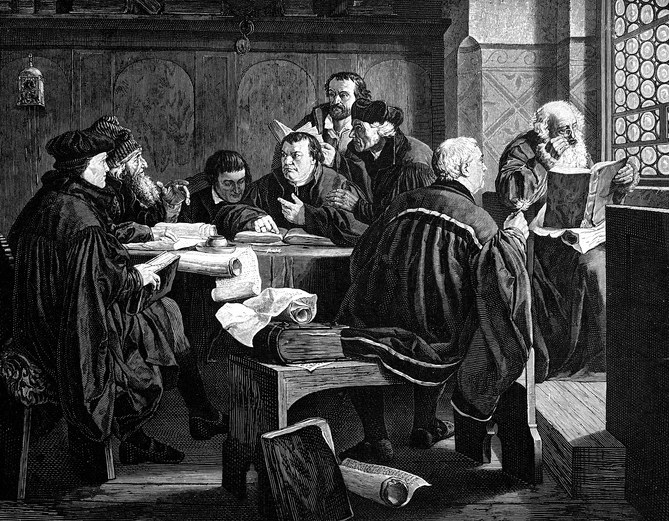 The Teacher’s Notes–Faith Against All Odds, Lesson 5 Adult Bible Study Guide, 2024 2Q, "The Great Controversy"
The Teacher's Notes – April 27, 2024
The Teacher’s Notes–Faith Against All Odds, Lesson 5 Adult Bible Study Guide, 2024 2Q, "The Great Controversy"
The Teacher's Notes – April 27, 2024
Sabbath School Lesson for April 27-May 3, 2024 Overview of Lesson 5, Faith Against All Odds Memory Text: “Your word I have hidden in my heart, that I might not sin against You.” Psalm 119:11, NKJV God’s word was especially precious to those early Protestant Reformers, as they broke out of the ranks of corrupt church leaders and began to see the erroneous beliefs that had been coming out of papal Rome. No longer were they content to blindly follow the false ideas preached to them from a selfish, pompous church hierarchy. Through faithful men like Wycliffe and Tyndale, the Bible truth of sola scriptura (Scripture alone) became the prevailing thought among God’s humble followers. Getting the Bible into the hands of everyone became their goal, as they feverishly worked to translate the Scriptures into their native language, so the common people could see God’s truth for themselves. Then the beliefs of sola gratia (grace alone) and sola fide (faith alone) were discovered by men like Martin Luther and John Wesley. They courageously began to rely on faith and the grace of God to save them, rather than their own works, even though their divinely-inspired ministries ultimately cost them their lives. Read chapters 7-11 of The Great Controversy for historical background of our lesson this week. It will cover these topics: Sunday: God’s Word Alone–saturating our minds with God’s word Monday: Passing on God’s Word–sharing the truths that are in the Bible Tuesday: Enlightened by the Spirit–allowing the Holy Spirit to interpret Scriptures Wednesday: Christ Alone…Grace Alone–relying on God’s grace Thursday: Obedience–The Fruit of Faith–letting our faith sustain us Sunday: God’s Word Alone The early Reformers were thrilled to find the Scriptures, which had so long been out of reach for their study and enlightenment. The light that shone from its pages, however, was so bright that the truths which it uncovered must be discovered gradually over time. The goal of these first, innovative theologians was merely to bring God’s word, in its entirety, to the populace, allowing them to uncover its teachings and make them their own. To do this, they realized that the Bible must be translated into the spoken language of the people. For John Wycliffe, in the 1300s, that meant the English language. He excitedly undertook the task then of translating the Latin Vulgate into English. Having the Bible available to them turned their sorrows into joy, their doubts into certainty, and their weaknesses into strength. No casual, superficial study would satisfy these Reformers. They saturated themselves with the light that flowed from the pages of Scripture now available to them. Bible Verses: Psalm 119:103, 104, 147, and 162 What should be our attitude when it comes to Bible study? What can it do for us? Revelation 22:2 How does Bible study fully energize us physically, mentally, emotionally, and spiritually, bringing us healing and life like the leaves on God’s tree of life described in Revelation? Monday: Passing on God’s Word Just as God commanded the light to shine on the first day of creation, He orchestrated the light that shone out of the darkness of papal Rome’s medieval era. Wycliffe’s work of translating the Bible was continued 140 years later by another Bible scholar, William Tyndale. Tyndale produced the first English Bible that used the original Hebrew and Greek texts. Less than a century after he was martyred for his faith, the familiar King James Version was published in 1611. The popular King James Version drew heavily from Tyndale’s earlier works. It was approximately 80% based on Tyndale’s translation. By this time, the invention of the printing press made God’s Holy Bible even more accessible to the masses. These early Reformers were not only content with finding God’s truths for themselves, but they were excited enough to share this treasure with as many others as possible. We should also take every opportunity to pass on God’s word to those who are thirsting for it. Bible Texts: 2 Corinthians 4:1-6, 2:4 What does the Bible teach us about who God is and why is it important to share that knowledge with others? Daniel 12:3 and Revelation 14:13 How can we see Tyndale’s life and other Reformers in these texts? What opportunities do you take to reflect the light of God’s word and influence others for eternity? How could we do more? Tuesday: Enlightened by the Spirit Early Reformers soon came to understand that the Holy Spirit should be relied on for interpreting doctrine, not the priests and popes they had previously followed blindly without question. The same Holy Spirit who had inspired the authors of His word would enlighten their understanding of it and guide believers into truth (John 16:13). With the entire Bible available for their study, the Reformers soon learned that when a passage seemed beyond their understanding, the Holy Spirit would guide them to places where the wording was more clear. Instead of enlightening, Satan’s goal has always been to obscure the teachings and value of God’s word. He either promotes church tradition above keeping God’s commandments (Matthew 5:3 and Acts 5:29), or he leads us to view the Scriptures as merely good literature that isn’t reliable and true. In addition, he causes the cares of life to distract us from our time in God’s word. Bible Verses: John 14:25, 26, 16:13-15, and 2 Peter 1:20, 21 What is the Holy Spirit’s role in helping us understand God’s word? Will we ever know ALL the truth, and why, or why not? Explain your answer. Wednesday: Christ Alone…Grace Alone Many of us have been taught that when we do our best, God does the rest. But, Martin Luther found that actually, God does it all. Our efforts are of no value when it comes to being saved. This isn’t to say that obedience isn’t important in the Christian life, but obedience, or even faith, isn’t what saves us. “For by grace you have been saved through faith, and that not of yourselves; it is the gift of God” (Ephesians The Teacher’s Notes–Faith Against All Odds, Lesson 5 Adult Bible Study Guide, 2024 2Q, “The Great Controversy”“>Read more…
Read more... The Teacher’s Notes–Standing for the Truth, Lesson 4 Adult Sabbath School Lesson, 2024 2Q, "The Great Controversy"
The Teacher's Notes – April 20, 2024
The Teacher’s Notes–Standing for the Truth, Lesson 4 Adult Sabbath School Lesson, 2024 2Q, "The Great Controversy"
The Teacher's Notes – April 20, 2024
Sabbath School Lesson for April 20-26, 2024 Overview of Lesson 4 Memory Text: ” ‘And as Moses lifted up the serpent in the wilderness, even so must the Son of Man be lifted up, that whoever believes in Him should not perish but have eternal life.’ ” John 3:14, 15 NKJV Continuing the story of the great controversy, we are drawn once again to the persecution of God’s followers, which indicates the deadly lengths Satan will use to drown out God and His word. Smyrna, one of the seven prophetic churches mentioned in chapters 2 and 3 of Revelation, was an ancient city (now the Turkish seacoast city of Izmir) that had a thriving Christian population. It was in the town square of Smyrna that an early church leader in the second century, Polycarp, lost his life when he refused to burn incense to the Roman gods. But, the persecution only worsened, as each century brought more apostacy and alienation from God’s word. It was under the auspices of papal Rome that these tragedies occurred and lasted for 1,260 years (from 538-1798 A.D.). Looking at the sacrifices of faithful martyrs, such as the Waldenses, Wycliffe, and Huss, we are inspired by their unflinching loyalty to God and the Scriptures. Read chapters 4-6 of The Great Controversy for the historical background of our lesson this week. It will cover these topics: Sunday: Persecuted Yet Triumphant–understanding the prophetic time period of 1,260 days Monday: Light Vanquishes the Darkness–learning the origin of the Waldenses and how they differed from the Franciscans Tuesday: Courage to Stand–valuing the work and sacrifices of the Waldensian Christians Wednesday: The Morning Star of the Reformation–finding out why John Wycliffe is called the Morning Star of the Reformation Thursday: Cheered by Hope–being sustained by the same hope of martyrs such as Huss, Jerome, Tyndale, and Latimer Sunday: Persecuted Yet Triumphant Intense persecution lasting 1,260 days or years is found in Daniel 7:25 and Revelation 12:6. Many think this time period represents the medieval years of 538-1798 A.D. when the papacy held supreme power over much of the Western world. 538 has been chosen because that was the year that the last barbarian tribe of Ostrogoths was driven out of Rome, and 1798 was the year that the pope was kidnapped and taken out of Rome by one of Napoleon’s generals. Although many faithful Christian believers were tortured and even lost their lives during those difficult years, we are encouraged that their sacrifices were not in vain. God’s cause prevailed, and they, like the persecuted church in Smyrna, would be rewarded by receiving a crown of life (Revelation 2:10). We, also, are uplifted when we realize that times of persecution are limited, as this one was, and God is ultimately in control of events. This would, thankfully, include the final, fierce persecution we know is to occur just before Christ’s promised return to earth to take us home with Him (Matthew 24:21, 22). Bible Verses: Numbers 14:34 and Ezekiel 4:6 Why do you think it’s reasonable to use the day/year principle in these verses (and others) about the 1,260 days prophecy? Daniel 8:23-25 and Revelation 12:6, 14 Why do you think we are given such a definitive timeframe of persecution, as seen in these 1,260 days, or prophetic years? Matthew 24:21, 22 How do these verses calm our fears about that final persecution in the last days? Monday: Light Vanquishes the Darkness At the beginning of the thirteenth century, two priests, both from wealthy backgrounds, decided to take vows of poverty and established orders in the Roman church. One was Francis of Assisi (1181-1226) and the other, a few decades earlier, was Peter Waldo (d. 1205). The monastic order of Franciscans was recognized by the pope, and still exists today (the present Pope Francis even honoring him by adopting his name). The difference in these two movements was the acceptance of the pope as their spiritual authority on earth by the Franciscans. The Waldenses, however, refused to give such allegiance, maintaining that their authority came from God’s holy Scriptures. The pope, therefore, declared that the Waldenses were heretics and sought to eliminate their influence by torture and death. But the courage of these brave martyrs inspired early Reformers to stand for Bible truths, as they were revealed to them. Many of them also lost their lives for their beliefs. Bible Verses: Jude 3, 4 Why do you think these two verses were so meaningful to the Waldensian believers in the Middle Ages? Revelation 2:10 What does it mean for the persecuted church members of Smyrna to have a crown of life? How does this verse encourage anyone who is persecuted for his faith? Tuesday: Courage to Stand Waldensian believers, forced to flee to the mountains of northern Italy and southern France, found ways to share their faith, despite the harsh living conditions in such mountainous terrain. They were one of the first groups to have the Bible in their own language. They lived before the invention of the printing press, so with great effort, they copied the Scriptures by hand. Not content to have God’s word just for themselves, they found ways to share it with those outside their own communities. Young people, who had been encouraged to memorize large passages of Scripture, traveled outside their mountain homes with portions of the handprinted word hidden in their clothing to share with those who were hungering to know God better. They went about as merchants and some enrolled in universities–finding ways to share their faith, despite the danger of being exposed as a Waldensian heretic and imprisoned or even tortured and killed. We are grateful for the vital role those courageous Waldenses played in preserving Bible truths for generations to come. Bible Verses: Acts 5:28-32, Ephesians 6:10-13, and Revelation 3:11 How would these messages have instructed and encouraged the Waldensians, and why should we also use God’s word for guidance and comfort today? Wednesday: The Morning Star of the Reformation Many people view Bible The Teacher’s Notes–Standing for the Truth, Lesson 4 Adult Sabbath School Lesson, 2024 2Q, “The Great Controversy”“>Read more…
Read more...
Featured Stories
 Connecting Virtually And In Person
Guest Contributor – April 30, 2024
Connecting Virtually And In Person
Guest Contributor – April 30, 2024
Cell phones have revolutionized the way we connect with those around the world. The introduction of cell phones opened the doors to instant communication. We can make a video call to Mom and Dad from miles away or text someone who is on a different continent. Cell phones have made us a digital society, and we do almost everything with our phones. With the passage of time, however, we have come to realize that by connecting digitally new challenges were created regarding how we understand one another. Before the existence of phones, we connected with people face-to-face. We met up with friends, family, co-workers or significant others to catch up with them. When we connect face-to-face, we can analyze facial expressions, tone of voice and posture. These things are essential to know if the person we are talking to is paying attention and is interested in what we are saying. Connecting digitally took away the visual aspect of seeing how the person we spoke to reacted —unless we made a video call, but it still isn’t the same. Liberty University, one of the largest private universities in the US, states that “Online interactions as convenient, advanced, and as helpful as they have been during this time, have also sometimes left us feeling more drained than energized.” If we go back to 2020 when we were in quarantine, we can remember the Zoom calls we made. Whether it was to attend school, work or see family members we all agreed that a video call wasn’t the same as being in that specific place in person. There were moments when we weren’t mentally present in that Zoom call. It was easy to open other tabs on the computer and play games, read an article, or do other work on the side. When I came to Union College, I remember how excited I was to be on campus and that I would be attending in-person classes. I was tired of Zoom calls and being home all day. I realized how important it was to me to be outside and see other people. Attending gatherings began to look exciting after being told that I could only stay home. I appreciate that we live in a world where technology has advanced to help us connect from wherever we are, but I can say that an online class isn’t the same as an in-person class. When I am in a classroom I get to interact with my classmates and do group projects. We can laugh and argue about topics that are talked about in class. Attending school in person allows us to create memories that we can look back on years down the road. Mental health has also been impacted now that we connect digitally more often. Psychiatrist Alan Teo observes that “[People] who regularly met in person with family and friends were less likely to report symptoms of depression.” When we stop connecting with people face-to-face, we become more attached to a digital connection. We could be afraid to meet new people and may wonder how to talk to them. Some of us may question how important social connections are to us. Dr. Stephen Braren, a researcher in developmental psychology, states that “Loneliness is a vital warning signal that tells us that our basic need for social connection is not met.” We may feel lonely when we move away from our family, or we travel to a new area to go to school or work. This leads us to attend events that happen around us such as small groups or gatherings. If we haven’t made connections yet we search for places that will create those connections for us. Maybe we don’t want to physically participate in an event, so we turn to digital communities. Facebook offers communities that are about a well-known individual, hobbies such as art or photography, or a variety of careers. We can join these groups and relate to others because of a common interest. Being part of a virtual society isn’t a bad thing. Through cell phones we have many different avenues to connect with people in some way. I am not saying we should get rid of our cell phones and forget about phone and video calls or text messaging. Yet we must take time to reflect on how much time we spend on our cell phones and the way we connect with those online. We should always remember the importance of having face-to-face connections as well. Through whatever channels, we are meant to connect with others and to have meaningful relationships. How to have a great in-person conversation Starting a meaningful conversation with someone you don’t know well can feel daunting, but with a few simple tips, you can foster genuine connections and meaningful interactions. Begin with a friendly greeting and a warm smile to create a welcoming atmosphere. Introduce yourself and repeat your name and their name. Give a compliment about what they’re wearing or an achievement they had if there are any you know about. Listen attentively and show interest in the conversation you are having. Ask open-ended questions about their family, work, hobbies or other things. Katie Tahay-Martinez is a senior at Union Adventist University in Lincoln, Nebraska. She is majoring in Language Arts Secondary Education to teach high school students.
Read more...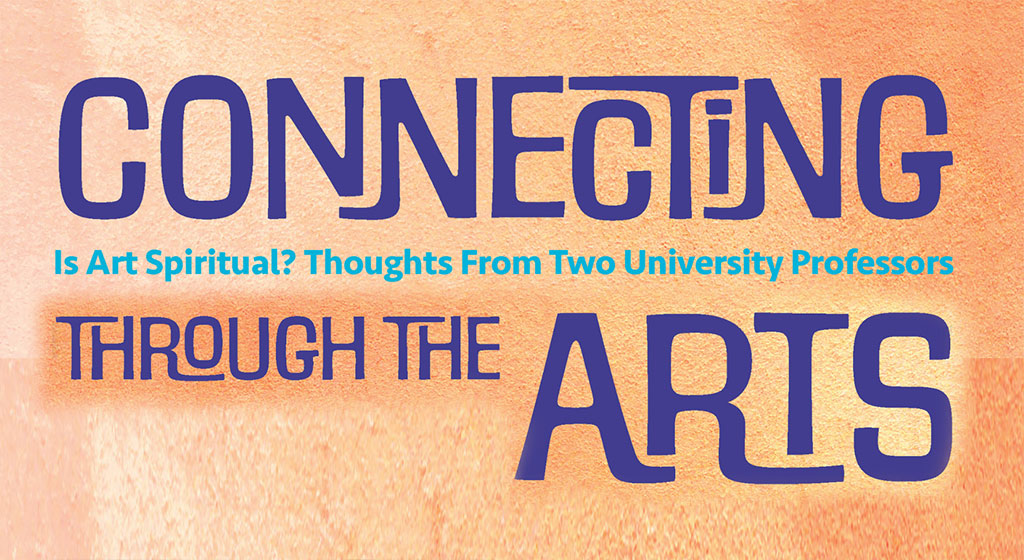 Connecting Through The Arts Is art spiritual? Thoughts from two university professors
Guest Contributor – April 30, 2024
Connecting Through The Arts Is art spiritual? Thoughts from two university professors
Guest Contributor – April 30, 2024
Suzanne Ócsai: Assistant Professor of Art and Design Suzanne Ócsai was three years old when she told her mother she wanted to be an artist. Since her father was a mechanical engineer, the house was always stocked with pencils and paper. Ócsai had just finished teaching a computer design class when I walked into her office. She’s been a professor of Art and Design at Union Adventist University since 2022. Ócsai offered two comments on what she believes makes art spiritual. “The entire process of creating art is spiritual. From the ideation process to even the practice.” She believes that in order to create something that will really have a profound effect on the viewer, the artist has to put themself into the piece. “That requires opening up their soul, which makes it a spiritual experience.” Her second response was, “I think that honesty is the spiritual journey. You must be honest to even have a spiritual journey. Art, in its true sense, makes us question things. It makes us feel and confront what makes us uncomfortable.” She identified this as impacting people in either drawing them toward their journey or pushing them away. Dealing with things honestly can be uncomfortable. “Artists choose to live in that uncomfortable space of grappling with difficult topics and being vulnerable. They’re judged a lot. It means to show parts of yourself that, oftentimes, people try to hide.” When I asked what art means to her, Ócsai laughed, telling me no artist wants to sound cliché. For her, art is about connecting with her heritage and meeting parts of herself that she’s never known. It connects her to God, as she stated, “I’m continuing to learn new things about myself every day, and it’s the same in my relationship with God. For me, art is how I process what I’m learning, whether that’s about myself or God.” In some ways, she’s found the closest connection to God has been through art. “Living as an artist is to look at the world differently.” It gives her the opportunity to be a part of a community that takes an idea and makes it into something tangible. She expressed how it’s something extremely special and validating to see a thought materialize. Ócsai rose from where she was sitting at her desk and pointed to two art pieces depicting Jesus. They were pieces acquired from former art professors she regards dearly. Both contained dark imagery. One was of Christ on the cross, with dark clouds looming above. The other, a somber portrait. She studied them, stating that they were images of suffering, and she identified suffering as being a driving force behind why many artists create. She began explaining that “when you are an artist tapping into those parts of yourself that are dark and suffering, you can feel very alone and isolated. But when you’ve created something from that, there’s somebody who can relate.” Looking at the two paintings, Ócsai understands that on the cross, Jesus felt that suffering, and art is a way for her to connect to Him. Alan Orrison: Art and Design Program Director When Alan Orrison was seven years old, he began taking photos on a little Mickey Mouse camera. However, it wasn’t until he was in undergraduate school that he created something he would consider art. For Orrison, his creativity is ignited by the process of solving and exploring solutions to problems, from the personal and small-scale things to the societal and bigger-level issues. “God has given us art as one of the best tools to process this world and its challenges,” Orrison responded when I asked what art means to him. “God does amazing work through His church and other community organizations, but art has an often-overlooked ability to cut right to the heart of hard issues, raising awareness and lifting each other up. Sometimes as an individual artist you’re more free to speak truth into situations around you. If you see something, you can say something, and that is witnessing.” The spiritual nature of art has been a complex conversation for years. Orrison related how the history of art has evolved over time. “Looking back at art history, art was primarily a religious practice. Art was done for the church; it was religious and had to be done with a certain formula, which made it religious art. But I think it’s limiting God, in what we can and cannot talk about, when we have to abide by those set rules. Art is here to help us process all the things around us, the things we care about. There are other things that Christian artists can and should be portraying, talking about, and introducing to people that may be difficult and peculiar.” I was curious to know if Orrison has done any particular art that was especially impactful to him. He said there is an abstract series he created, highlighting the various and sometimes weird feelings a person gets at the ocean. He recalls feeling successful about this piece when a viewer told him that looking at that abstract art made them feel scared. Orrison felt content with this response because his goal in creating art is to give people the space to feel, question or think about something, especially in regard to nature. He stated that most of his work “is an attempt to help people think about their relationship to the natural world or the environment.” Orrison passionately spoke of how God uses artists to highlight the beauty of His creation in places unexpected or in the small and mundane aspects of life—those facets that aren’t the beautiful sunsets and peaks of mountains commonly associated with God’s creation. His views about art having a place within spirituality are very inclusive. “Good art gives space for everybody to experience it, regardless of background. You can come to a work of art with all your baggage and enter into a dialogue.” This is the beauty that art has. As he Connecting Through The Arts Is art spiritual? Thoughts from two university professors “>Read more…
Read more... Connecting through Prayer Our bridge to God
Guest Contributor – April 30, 2024
Connecting through Prayer Our bridge to God
Guest Contributor – April 30, 2024
Prayer looks different for each person and in each setting. We have prayer around the dinner table, at church kneeling, during personal early-morning devotions, or in a group gathering with a popcorn prayer, going around in a circle speaking to God about worries and requests. Prayer is so many things—but what does it really mean? A few Union Adventist University students recently answered questions about what prayer means to them. Mayah Evans, a senior nursing student, said, “Prayer is a way for us to connect with God. A way we can go to Him with any burdens that lay on our hearts and a way that He can be more present in our lives every day.” Even Jesus went to God with His burdens. He knelt in the Garden of Gethsemane and gave His heavenly Father His worries and let Him take the wheel. We too can rely on God for our worries and doubts. He provided us, His children, a way to communicate with Him any time we feel the need. Ellen G. White says on page 85 of Thoughts From the Mount of Blessing: “By maintaining a connection with God, we shall be enabled to diffuse to others, through our association with them, the light, the peace, the serenity, that rule in our hearts. The strength acquired in prayer to God, united with persevering effort in training the mind in thoughtfulness and care-taking, prepares one for daily duties and keeps the spirit in peace under all circumstances.” Prayer is our link to heaven and our way to talk and communicate with the One we read about in the texts. Chala Gemeda, a senior theology major, related to this, stating, “In Revelation, it tells us the angels take our prayers to heaven, directly to the Father. For He listens to each of our prayers. Prayer is a special request to the Father. We know that He listens, and it’s important to connect with God and build your relationship with Him.” We talk to Him for many reasons—for requests, to ease our troubles, and to maintain a relationship with our Father in heaven. Building a relationship with God can be a difficult task. Many students like Chala mentioned that prayer is one of the most important disciplines in maintaining a relationship with God. But we should not rely solely on it. We must both pray and read Scripture to keep that connection strong. Elizabeth Campbell, a freshman at Union, said, “Prayer is the foundation of my relationship with God. It provides me with a way to always speak with Him. It is a peaceful time that I can spend one-on-one with Him.” Just as Jesus spent countless hours praying to God by Himself, we too should spend time talking to Him, using Jesus as our daily example of how to continue our relationship with God. A person at Union who not only prays every day but surrounds himself in prayer is theology professor Pierre Steenberg. He told me in an interview, “I pray when I’m driving and when I’m exercising. I am constantly praying.” He also started a routine of prayer for his students in the fall semester of 2023 that involves having his students write down their requests to God. Then he takes time outside of class and office hours to individually pray for them and their special requests. “All together, I have a stack of index cards with prayer requests just from one semester,” Steenberg shared. His testimony brought a drastically different perspective to my eyes. Jesus too surrounded Himself with prayer (Mark 1:35), and we are to surround ourselves with prayer and be forever connected to God through prayer, Scripture and worship. Prayer is many things. It’s a way to communicate, a form of invocation, and for some a lifestyle. Jesus went to prayer for many things, including thanks (Matthew 11:25; Luke 10:21), protection (John 17:11), and His believers (John 17:20). We go to God in prayer for many things, including comfort, thanks, safety and His Love. I grew up thinking there was a right and wrong way to pray, but no one but God can dictate that. Prayer at Work When Pierre Steenberg finished his degree through Andrews University, he and his wife decided it was time to start a family. It wasn’t an easy start because the baby came sooner than expected. Their son, Elmer, was only 31 weeks old at birth, three weeks earlier than his due date. According to Utah University of Health, if a baby is around 32 weeks old, there is a 95 percent chance of survival. Unfortunately, Elmer was completely septic when he entered this world. Steenberg recalls, “With only machines keeping him with us, through surgery after surgery, he fought to stay alive. Throughout all of this, I was praying. I wanted my son to stay alive, and I had prayer to be with me.” With the mortality rate at 21 percent, Elmer truly beat the odds and is now a P.E. and history teacher at Armona Union Academy in the San Joaquin Valley of California. How would Steenberg have handled a different outcome? “I would have handled it roughly the same,” he shares. “Just as Daniel and his friends stood in that furnace, they didn’t know what God was going to do, but they had trust that He would take care of them. I think I would have to trust God and know that in the end I will get to see Elmer in heaven one day. No matter the outcome, my trust in God will never waver.” For more about Pierre Steenberg’s prayer ministry, check out this video: https://bit.ly/3VtiRqx Source: https://www.ncbi.nlm.nih.gov/pmc/articles/PMC2891980/ https://healthcare.utah.edu/womens-health/pregnancy-birth/preterm-birth/when-is-it-safe-to-deliver#:~:text=Health%20Problems%20%26%20Outcomes%20for%2024,usually%20less%20than%2050%20percent. Gabriel Sanders is a senior English major at Union Adventist University. He is from Eagle Point, Oregon, and enjoys creative writing, hiking and skiing in his spare time.
Read more... Connecting Through Building Community The loneliness of international students
Guest Contributor – April 25, 2024
Connecting Through Building Community The loneliness of international students
Guest Contributor – April 25, 2024
“Culture shock shoved the loneliness into me,” Dureti Olana expressed with a distant look in her eyes. Her winter-blitzed lips annunciated vague sadness as she uttered those words to me. Loneliness plagued her, and she wasn’t the only one who felt this way. Several others did. Those called “international students.” No one really talks about loneliness, especially among Union Adventist University students. It’s already hard enough to be individuals from different walks of life trying to navigate the four walls of a university. But what more do students feel who traveled thousands of miles across oceans to a country where they had to start afresh? That itself is terrifying. International students studying abroad in the United States is nothing new. In fact, exchange students have been around since the origin of the word “school,” but recent years have seen a significant influx of students from all over the globe into the United States for study. According to research conducted last year by Statista for Higher Education, international students make up 5.6 percent of the total U.S. student population. At Union, they make up 5.87 percent. Once in the host country, these students face a new way of life, different ideologies, and oftentimes no community to fall back on. One might ask what makes loneliness for an international student different from the average college student. I’ll answer that: the sudden transfiguration of a once controlled life to a fast-paced society with no foundation in the culture. For students like Dureti, the culture shock that comes with arriving in a liberal country such as America is enough to make one feel singled out and backed into a corner. Used to a communal life in her faraway home of Ethiopia, where neighbors were secondary caretakers of her property and welfare, she was surprised to discover the “individualistic” mentality of her new host country. In her words, “In America, it is out of sight out of mind.” She explained that people don’t think about you when they don’t see you. Culture shock isn’t the only harbinger of loneliness for international students. Tracy, an aspiring occupational therapy assistant from Kenya, has been a student at Union for two years. In that duration of time she suffered recurring mental breakdowns. Her stumbling blocks were the severity of her workload and homesickness with no one to run to. Over time she has gotten past that loneliness or has learned how to hide it better. Most international students rarely speak of loneliness and the boring routine of their lives for a single reason: the fear of sounding ungrateful. In a perfect world with no injustice, hunger or marginalization, most international students would rarely step off the shores of their country save for personal interests and curiosity. But the quest for greener pastures and a chance to earn a place at the table has propelled these students into the bigger unknown with their fates and the fates of their loved ones back home in their palms. To complain would be a travesty of providence. A quote from the Igbo people of Nigeria says, Those whose palm kernels were cracked for them by a benevolent spirit should not forget to be humble. This was the mantra of many international students like Tracy, and as a result of self-silence, they back themselves into the cold arms of loneliness. Not every international student, however, experiences loneliness to the same magnitude. For Elvin, a Union computer science major from Rwanda, loneliness visited only when he was away from the gym, video games and arcade games. “You just have to find your tribe, especially people who will motivate you to keep pushing,” he stated over a game of checkers. Finding like-minded individuals and a warm community might sound easy, but it is a daunting task, especially to students who are more reserved in nature. This is where the already existing community can take the reins to spread warmth and welcome international students into the fold of belonging foremost as humans and essentially as Christia ns. Many times I have received help, guidance and assistance from wonderful individuals who made sure I settled in quite well the first few months after I arrived in the United States. So on days when loneliness would rock my boat, I remained steadfast from the single assurance of a community, no matter how small. There are various ways to spread warmth to international students. Care packages addressed to them, Thanksgiving dinner invites, and even a single note of reassurance and kindness would be a monumental display of connectedness. This will encourage togetherness and the type of fellowship spoken of in Romans 12:5: So we, who are many, are one body in Christ, and individually members of one another” (NKJV). Through connectedness and community, loneliness is vanquished. A true act of goodwill sparks another. Fortune Ogulere is a sophomore English major from Imo State, Nigeria. With a pen dipped increativity, he weaves prose, poetry, and thought-provoking pieces. He enjoys painting, singing, and eating ice cream. His debut novel is currently in the works.
Read more...


